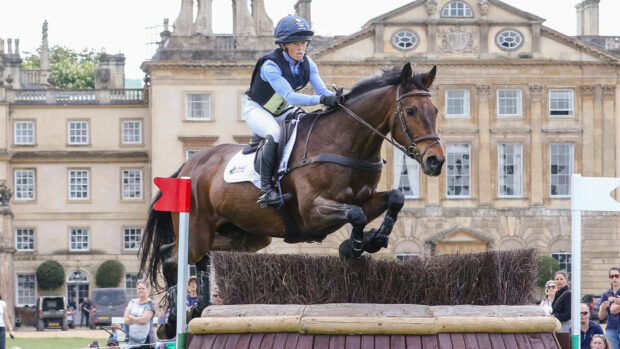Tensions can rise on show day, whatever level you're competing at. Emma Shadbolt asks the experts for their top tips for staying calm when it matters
1. Lynn Russell, showing
Have all travel boots and rugs prepared and labelled in boxes ready for a speedy getaway. The lorry is always pre-loaded with tack, waterproofs and diesel before the day and we pack all products needed in triplicate at the beginning of the season and replace them as we go. I use clothes pegs with the horses’ names on, holding a timetable of classes and rings for each horse with their tack. Always allow enough time to cope with traffic, parking and warming up sufficiently; it’s always better to be early rather than late.
2. Fiona Bigwood, dressage
I never head to a show without being organised and making sure I know exactly what I’m doing, where and at what time. I have everything such as the route to a show mapped out before so we know where we’re going. I’m a big believer in being prepared for everything and so I stick to a routine to keep everything running smoothly.
3. Dan Delsart, showjumping
I make sure I have clean tack and load most of the lorry the day before. In the morning we allow plenty of time to re-bath the dirty greys and groom the already bathed horses. My main tip is to eat in the morning. I make sure I have a full English breakfast where I can. I’m not a hugely nervous person but occasionally if I do get nervous, I like to focus on the course and how to ride it. You can learn so much from watching other people and I ask advice from fellow competitors if I need it.
4. Rachel Horton, showjumping
Make sure you’re doing it for you and no one else — this will take away so much stress and you’ll have much more fun. Relax — I am a big believer in what will be will be, that is why I put my nerves to the back of my head and just concentrate on getting the job done. Everyone is different, with different styles and techniques so find what works for you personally and go from there.
5. Olivia Oakeley, dressage
Watch back your previous tests to learn from mistakes. Knowing what you need to work on when preparing for your test allows you to learn what to focus on at home and in the warm-up before shows. This allows you to concentrate on the movements in which you need extra practice and can help you earn extra marks. It also lets you focus on the highlights of the test that you’ll have to perform.
6. Daisy Coakley, dressage and eventing
In order to avoid stress it is good work backwards from your test time and write down when you are getting yourself ready in your competition kit, tacking up, getting on and warming up. It is also important that you share this information with your team so everyone knows what they are doing and when. I like to keep myself busy if I arrive at a show a few hours beforehand. Eatching tests is a good distraction and also a good chance to learn from others.
7. Kylie Roddy, eventing
Make sure you are well prepared. Have all kit, clothes and boots washed and polished and packed in the lorry the night before — with travel kits outside each horse’s stable ready for the morning. Riding-wise, practise until your weakness becomes second nature. For example if you have a horse that drifts left and runs out at skinnies and corners, get your barrels out and start building.
8. Emma-Jo Slater, showjumping
I usually have about four horses in novice classes so we need to be organised. I need to have a good groom and the horses have to be in the correct order in the lorry. My owner Kim Barzilay will go and do the entries while I start working in and then she will come and do the fences. The higher level horses are easier and I have more time to walk the course. To prepare for shows the youngsters would all be jumped at home around a course. We try to change the course often so they don’t have a shock when they see a different course at a show.
Like this? You might also enjoy reading these:
10 tips to banish competition riding nerves
7 ways to optimise your competition performance on show day
9. Becky Moody, dressage
Know your horse! My preparation for the big shows starts a long way in advance, and a couple of weeks before the show I work out each horse’s individual work plan so that they peak at the right time. That plan can really vary — some horses need lots of work so they don’t try and ditch me, some need lots of hacking and down time so that they are fresh and up for it. This is important for their sake but also yours — if you feel it’s going well then you will be in a better place too.



